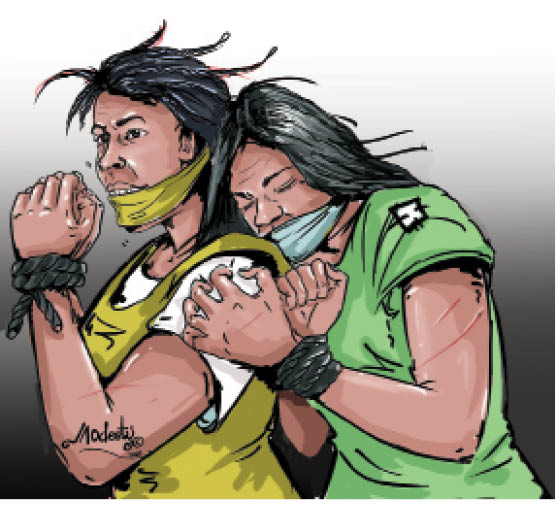Human trafficking in Nigeria has continued to take disturbing dimensions with socio-economic, moral and cultural consequences to both individual as well as national development. Nigeria serves as a source, and transit country thus making it a major player in the human trafficking chain.
Nigerian women and girls, who are mostly victims of trafficking, are mainly recruited for domestic servitude and sex while boys are generally forced to work on plantations or in commercial farming, construction, quarries and mines. They are also engaged in petty crimes and drug trade.
- Implications of Buhari’s approval of N123.133bn for accrued pension rights, others
- VAT ruling: FG to lose taxes amidst dwindling revenue
According to the 2014 trafficking report, trafficking of young women from Nigeria to Europe for the purpose of sexual exploitation is one of the most persistent trafficking flows, as it is very well organised.
A lot of researches have been carried out on this issue and reasons adduced for the thriving of this inglorious trade. Some of the causes are, insatiable lust for money, materialism and discrimination (particularly against women, children and minorities) violence, general insecurity, internal displacement as a result of ethnic/religious crises, low level of education, particularly among women.
The fight against human trafficking is just beginning and it requires the efforts of all and sundry. The efforts of civil societies, mass media, embassies and governments in creating awareness on this issue are commendable and should be sustained.
Government must embark on critical assessment before embarking on any poverty alleviation scheme, as the various ones embarked upon have not made any meaningful impact in the lives of Nigerians.
There should also be a symbiotic relationship between government, NGOs, embassies and donor agencies to carry this fight to local areas. Also imperative for the fight are good governance, equal opportunities, justice, and provision of facilities, to minimize the urge to migrate.
Finally, there should also be training of security officers and the media in the treatment and handling of trafficked victims.
Bilkisu Isa Salihu is an intern at PR Nigeria Centre Kano

 Join Daily Trust WhatsApp Community For Quick Access To News and Happenings Around You.
Join Daily Trust WhatsApp Community For Quick Access To News and Happenings Around You.


